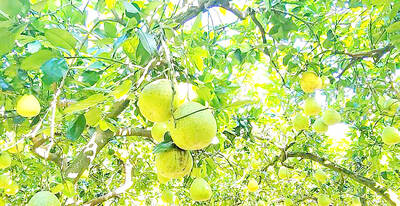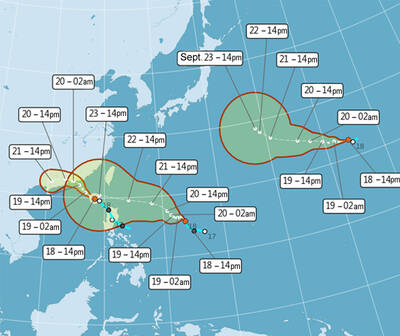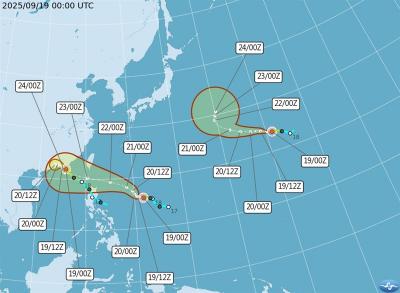The Taiwan Transportation Safety Board should work with other government agencies to address safety issues caused by electric vehicles equipped with battery cells made in China, Democratic Progressive Party Legislator Chen Ou-po (陳歐珀) told a meeting of the legislature’s Transportation Committee yesterday.
The committee was scheduled to review the board’s budget plan for the next fiscal year, but Chen told board chairman Young Hong-tsu (楊宏智) that he was concerned about safety issues raised after seven electric buses were destroyed when a fire broke out at a Taoyuan Bus Co maintenance station on March 9.
An investigation by the Taoyuan Fire Department showed that the fire started in a charging port at the maintenance station.
RAC Electric Vehicles, which manufactures electric buses for the company and the Ministry of Transportation and Communications, said that the batteries were made in China, Chen said.
RAC is one of two local companies qualified to participate in an electric bus pilot project launched by the ministry last year.
Chen showed committee members a photograph of the buses destroyed in the blaze.
The buses had used lithium batteries made by Shenzhen-based Winston Battery.
While the government aims to develop the electric bus industry, its main challenge is that Taiwan continues to use battery cells made in China, Chen added.
Rules governing the distribution of government subsidies for purchases of electric buses only require that the battery packs be produced domestically, but the rules do not cover the cells inside the battery packs, he said.
“A safe battery cell is the foundation of a lithium battery. It is impossible for Taiwan to develop the electric vehicle industry if it does not have the ability to produce its own battery cells, or if China controls the technology to produce them,” Chen said.
“A lithium battery accounts for 40 percent of the manufacturing costs of an electric vehicle. If we continue to pursue development in this direction, we are letting China take advantage of us and hurting our own businesses,” he added.
“I am not saying that we cannot buy parts and components from China, but they should be safe to use,” Chen said.
Across the nation, 750 electric buses have been installed with China-made battery cells, Chen said, adding that the safety risks would only multiply over the next four years as more bus companies are scheduled to receive subsidies to purchase electric buses as part of the government’s green energy policy.
Board members should work with members of the Executive Yuan’s Board of Science and Technology, as well as other agency officials, to manage the safety risks and protect the nation’s interests, Chen said.

NEW AGREEMENT: Malaysia approved imports last year after nearly two years of negotiations and inspections to meet quarantine requirements, officials said Up to 3.6 tonnes of pomeloes from Taiwan cleared Malaysian customs on Friday, in the first shipment of Taiwanese pomeloes to Malaysia. Taiwan-grown pomeloes are popular in domestic and overseas markets for their tender and juicy taste, the Ministry of Agriculture’s Animal and Plant Health Inspection Agency said. The fruit is already exported to Japan, Canada, Hong Kong, Singapore and the Philippines, it added. The agency began applying for access to the Malaysian market in 2023, compiling data on climate suitability, pests and diseases, and post-harvest handling, while also engaging in nearly two years of negotiations with Malaysian authorities and submitting supplementary

PEAK MONTHS: Data showed that on average 25 to 27 typhoons formed in the Pacific and South China seas annually, with about four forming per month in July and October One of three tropical depressions in the Pacific strengthened into a typhoon yesterday afternoon, while two others are expected to become typhoons by today, Central Weather Administration (CWA) forecaster Lee Ming-hsiang (李名翔) said yesterday. The outer circulation of Tropical Depression No. 20, now Typhoon Mitag, has brought light rain to Hualien, Taitung and areas in the south, Lee said, adding that as of 2pm yesterday, Mitag was moving west-northwest at 16kph, but is not expected to directly affect Taiwan. It was possible that Tropical Depression No. 21 would become a typhoon as soon as last night, he said. It was moving in a

Tigerair Taiwan and China Airlines (CAL) today announced that several international flights were canceled or rescheduled due to Typhoon Ragasa. The Central Weather Administration (CWA) has maintained sea and land warnings for the typhoon. Its storm circle reached the Hengchun Peninsula (恆春半島) on Taiwan's southern tip at 11am today. Tigerair Taiwan said it canceled Monday's IT551/IT552 Taoyuan-Da Nang, IT606/IT607 Taoyuan-Busan and IT602 Taoyuan-Seoul Incheon flights. Tomorrow, cancelations include IT603 Seoul Incheon-Taoyuan, as well as flights between Taoyuan and Sapporo, Osaka, Tokyo Narita, Okinawa, Fukuoka, Saga, Tokyo Haneda, Nagoya, Asahikawa and Jeju. On Wednesday, the IT321/IT322 Kaohsiung-Macau round-trip would also be canceled. CAL announced that today's

Three tropical depressions yesterday intensified into tropical storms, with one likely to affect Taiwan as a typhoon, the Central Weather Administration (CWA) said. The three storms, named Mitag, Ragasa and Neoguri, were designated as storms No. 17 to 19 for this year, the CWA said. Projected routes indicate that Ragasa is most likely to affect Taiwan, it said. As of 2am today, Ragasa was 1,370km east-southeast of Oluanpi (鵝鑾鼻) on the southernmost tip of Taiwan. It was moving west-northwest before turning northwest, slowing from 11kph to 6kph, the agency said. A sea warning for Ragasa is unlikely before Sunday afternoon, but its outer rim